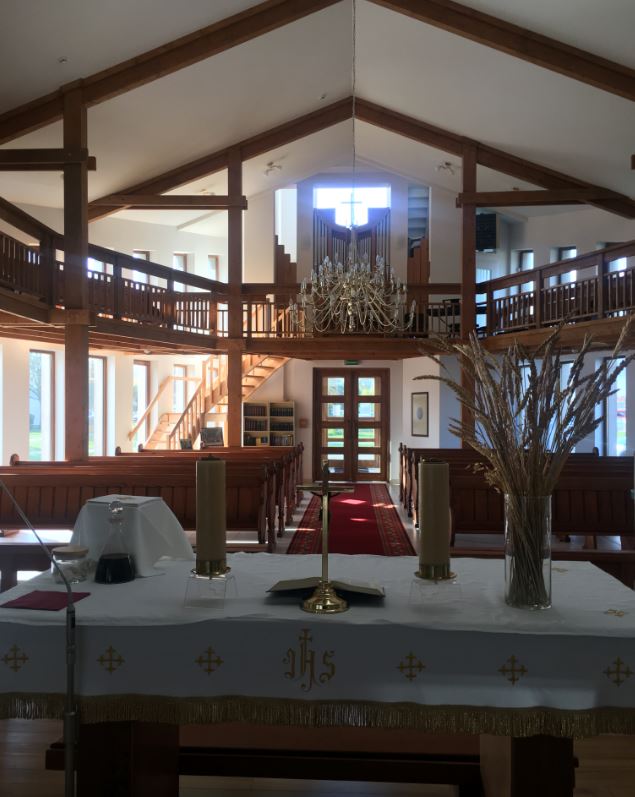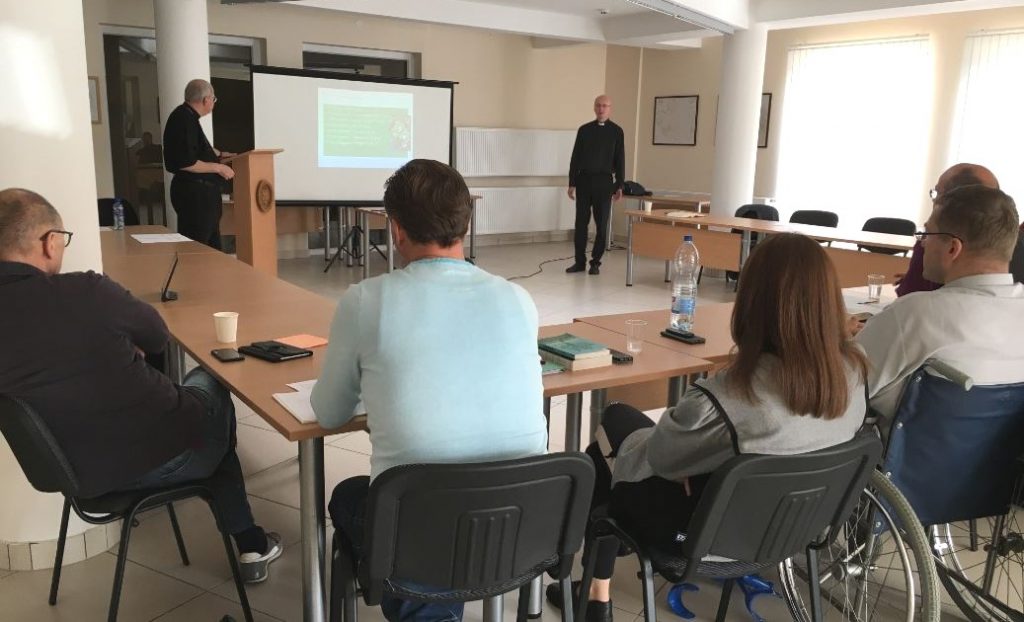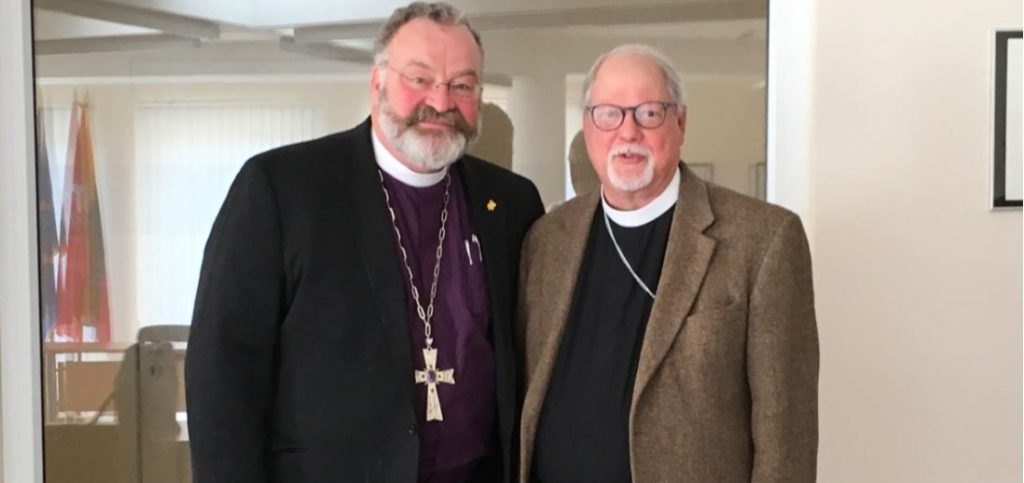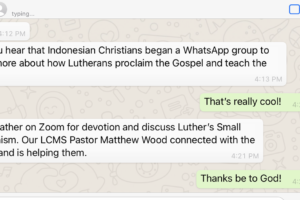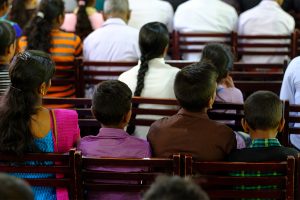“Behold, how good and pleasant it is when brothers dwell in unity!” (Psalm 133:1)
The Eurasia mission team continues to join in fellowship with partner churches throughout the region. On October 3 and 4, Eurasia missionary and theological educator Rev. Dr. Charles Cortright, along with music educators Deaconess Kim Bueltmann and Michael Morizio met with pastors and church musicians of the Evangelical Lutheran Church of Lithuania and the Evangelical Lutheran Church of Latvia for lectures and song training on the Book of Psalms. The conference was held in Palanga, Lithuania at Palangos evangelikų liuteronų bažnyčia—Palanga Evangelical Lutheran Church.
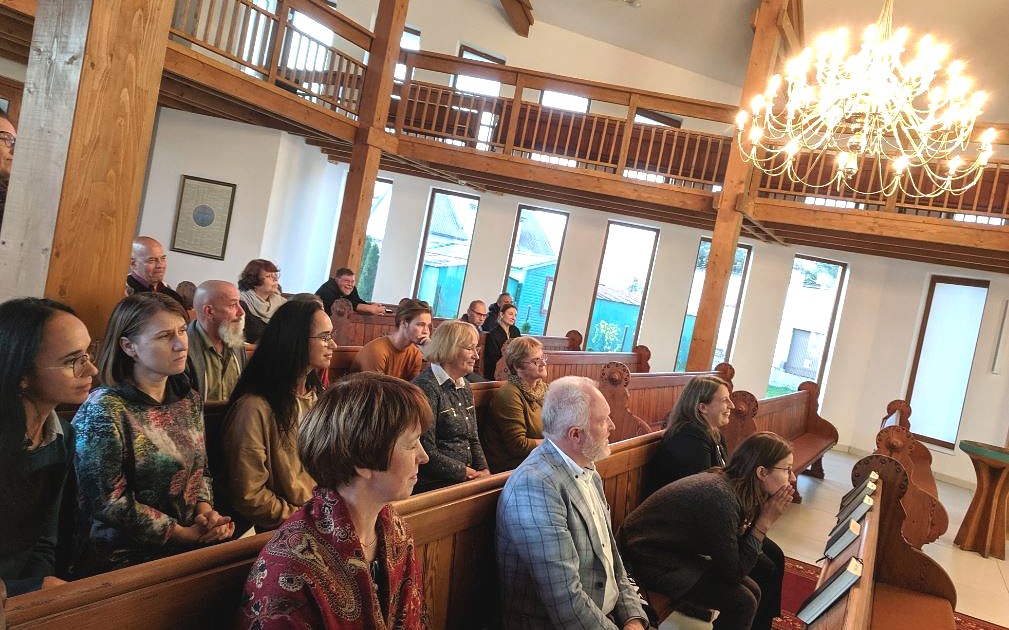
The Psalms in word
Dr. Cortright began his lectures by recounting the probable history of the writing and collection of the Psalter, the use of the psalms in Israel, and their subsequent place in the Christian canon. Cortright’s talks were translated in real time by Rev. Dr. Darius Petkunas, senior pastor at Palanga Evangelical Lutheran Church and organizer of the conference.
The lectures continued with a review of Hebrew poetics and the characteristics of Hebrew poetry. According to Cortright, “Most poetry loses either form or meaning in translation, but the essence of Hebrew poetry allows for its form to be maintained in translation.”
On Friday morning Cortright finished up his lectures first with an examination of the so-called “imprecatory” or “cursing” psalms. This group of psalms is often challenging to Christians. Cortright presented a look at the theological perspective of these psalms as a way of understanding them. Finally, he discussed Martin Luther’s use of Christ as the basis of understanding the entire Psalter. Far from being the subject of the Messianic Psalms, or hinted at in the psalms, Luther saw Christ as the key to the interpretation of the psalms.
Also, on Friday morning, LCMS President Matthew Harrison joined the group of pastors on his tour of European partner churches. He extended greetings to the Lithuanian and Latvian pastors from the members of the LCMS. His message to these pastors was to hold fast to the Word and continue in their spread of the Gospel. “Pastors need to preach the Gospel, and not preach about the Gospel,” He said. Harrison was warmly received by Lithuanian bishop Mindaugas Sabutis and Latvian bishop Hanss Jensons and their fellow pastors.
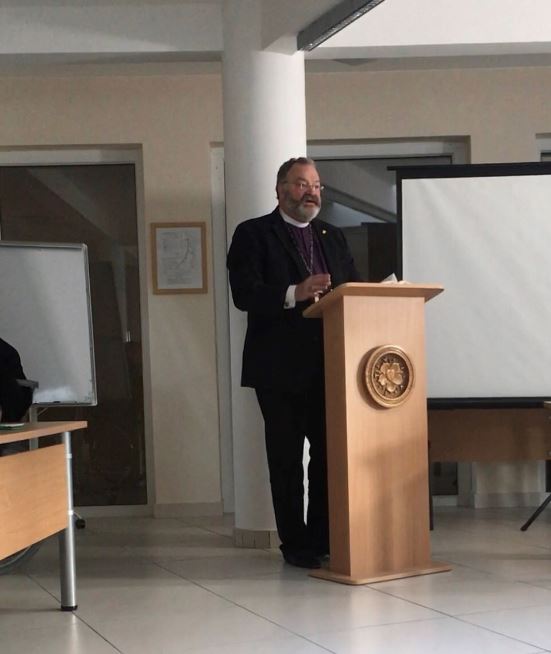
The Psalms in song
Cortright’s Friday morning lecture on the psalms to the Lithuanian and Latvian pastors was followed by a musical seminar—an introduction to singing the psalms as part of the traditional Lutheran liturgy. Musicians representing 15 parishes throughout Lithuania attended.
Cortright spoke to the musicians about the development of the “Office of the Hours,” which is the evolution and use of extra church services beyond the Divine Service of Word and Sacrament. He taught how the early church held regular services that were tied to specific hours of the Lord’s Passion. In essence, these services—such as Matins, Vespers and Compline—became fixed to various times before and after sunrise. At each occasion prayers were offered, scriptures were read, and psalms and other hymns were sung.
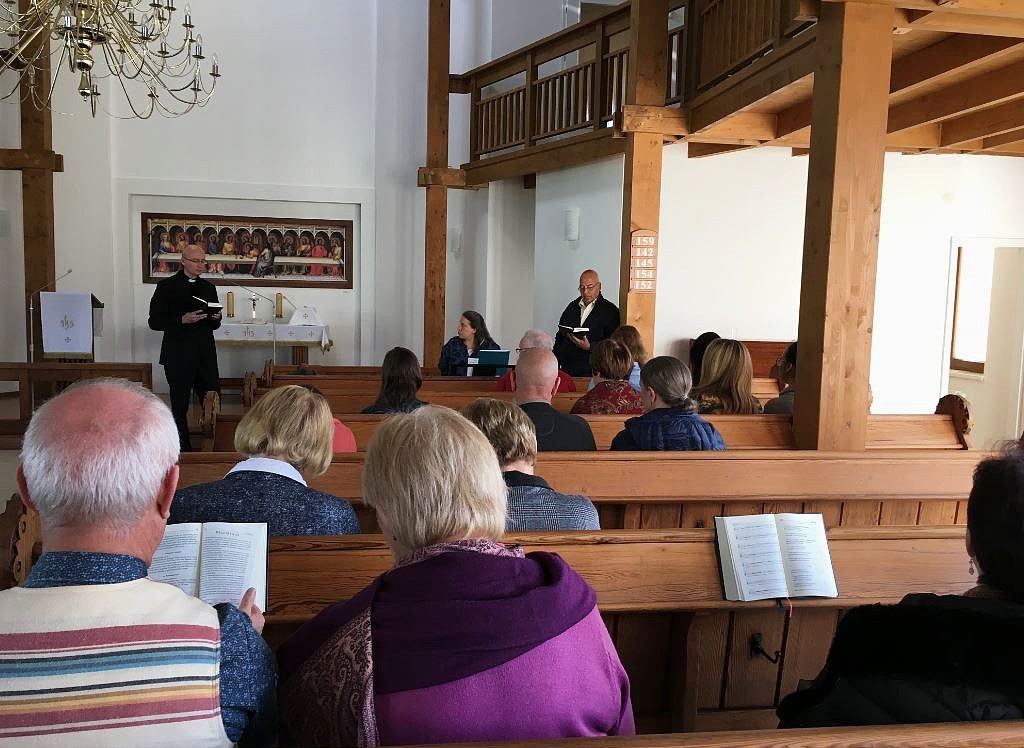
Immediately following Cortright’s introduction, a practical musical application workshop was conducted by missionaries Kim Bueltmann and Michael Morizio. Bueltmann, an LCMS Deaconess in Eurasia, is also a church musician and singer. Morizio is the associate regional business manager in Eurasia, as well liturgical music composer and singer.
On Friday afternoon Bueltmann and Morizio taught the musicians how to sing the Gregorian chant responses and psalm verses in both the Matins and Vespers services. They taught the musical settings from the Lithuanian church’s own hymnal. On Friday evening, the whole group sang the Vespers service together in Chapel—for the very first time. The next morning the participating musicians sang the entire Matins service together—again for the first time. Bishop Sabutis officiated at both services.
The workshop continued throughout the morning on Saturday, Oct 5. The musicians were taught to sing different musical settings of the psalms. They were also introduced to the eight Gregorian psalm tones available in the Lithuanian hymnal. They were shown how to apply these tones to the various psalms.
As a close to the final session, the entire group of musicians participated in a stimulating exercise in singing different arrangements and original compositions of psalm settings provided by Bueltmann and Morizio as part of the workshop.
Discussions are underway for a follow-on musical seminar in April 2020.
